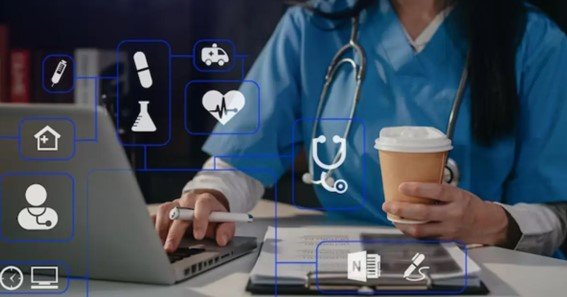Healthcare institutions encounter hurdles in staff training due to their rapidly changing environment. Using a Learning Management System (LMS) customized for healthcare can effectively tackle these challenges. This article delves into the importance of an LMS for healthcare organizations, emphasizing how it improves training quality and efficiency while ensuring compliance.
Navigating the Landscape
Compliance with regulations continues to be a challenge in the healthcare sector, where professionals must follow rules and standards that vary based on location and areas of expertise. Using a healthcare LMS can simplify this by providing courses and materials that match the latest guidelines. Additionally, monitoring and reporting tools help guarantee that all staff members meet the required compliance standards, minimizing the chances of non-compliance.
Improving Education and Learning Opportunities
Healthcare training often involves both theoretical knowledge and practical demonstrations. A personalized Learning Management System (LMS) offers engaging lessons with components like simulations and multimedia materials to accommodate various learning preferences. These platforms support in-depth comprehension and memory retention. Additionally, customizable training paths enable organizations to target specific skills and competencies, ensuring that employees are adequately prepared to provide top-notch care.
Enhancing Employee Productivity
Ongoing professional development is crucial for improving employee performance in healthcare environments. A variety of specialized learning platforms provide customized learning opportunities for staff to improve their skills and keep up with developments in their fields. By equipping employees with the knowledge and skills they need, organizations can create a culture of excellence and creativity. Ultimately, this leads to improved patient outcomes.
Fostering Communication and Teamwork
In healthcare settings, it is vital for teams to communicate and work together effectively. A tailored Learning Management System (LMS) can serve as a hub for sharing information and promoting teamwork. Tools such as forums for discussions, chat capabilities, and joint projects encourage staff interaction and knowledge sharing. This helps cultivate a learning environment and mutual support, which improves the cohesion of the organization as a whole.
Optimizing Administrative Procedures
Juggling training programs and certifications can be overwhelming for healthcare administrators. Platforms tailored for learning management help streamline these tasks by taking care of scheduling, tracking training activities, and managing registrations. This streamlined process lightens the load for administrators, giving them time to focus on important strategic projects, ultimately leading to a workplace that runs smoothly and efficiently.
Ensuring the Security and Privacy of Data
Ensuring the security of data is crucial in the healthcare industry due to the confidentiality of records. A customized Learning Management System (LMS) includes security protocols to safeguard both learner and organizational data. Incorporating encryption methods, strict access controls, and regular audits helps maintain adherence to privacy laws and prevents unauthorized access incidents.
Efficiency in Costs and Optimal Use of Resources
Investing in a Learning Management System (LMS) can lead to cost reductions and efficiency improvements for healthcare institutions. By centralizing training resources and procedures within one system, organizations can reduce their dependence on external training services, resulting in cost savings and improved oversight of content quality and delivery. Moreover, utilizing online training options helps cut down on travel costs and minimizes time spent away from patient care responsibilities.
Embracing the Evolution of Technology
Advancements in technology are constantly changing the landscape of healthcare delivery across various sectors. A tailored LMS Software enables organizations to keep up with these developments by incorporating new tools and methods into their training initiatives. Virtual reality (VR), artificial intelligence (AI), and gamification are just a few examples of cutting-edge technologies that enhance the learning experience for healthcare practitioners as they prepare for upcoming challenges and opportunities in their field.
Embracing Multicultural and Diverse Employee Teams
Healthcare institutions commonly employ staff from diverse linguistic and cultural backgrounds. Specialized learning management systems (LMS) address this diversity by offering content in multiple languages and culturally appropriate formats. This approach ensures that all staff members have access to training materials that enhance their abilities and contribute to the organization’s overall success.
Summary
Ultimately, a tailored Learning Management System (LMS) proves essential for healthcare institutions aiming to enhance training effectiveness, ensure compliance, and improve operational efficiency. By catering to the specific needs of the industry and harnessing technological advancements, these systems enable organizations to boost staff productivity, enhance patient well-being, and stay ahead in a constantly evolving environment. Adopting an LMS represents a decision with lasting benefits for healthcare providers and their patients alike.
Read a fascinating piece here enhance-your-jeep-experience-with-hooke-road-accessories










